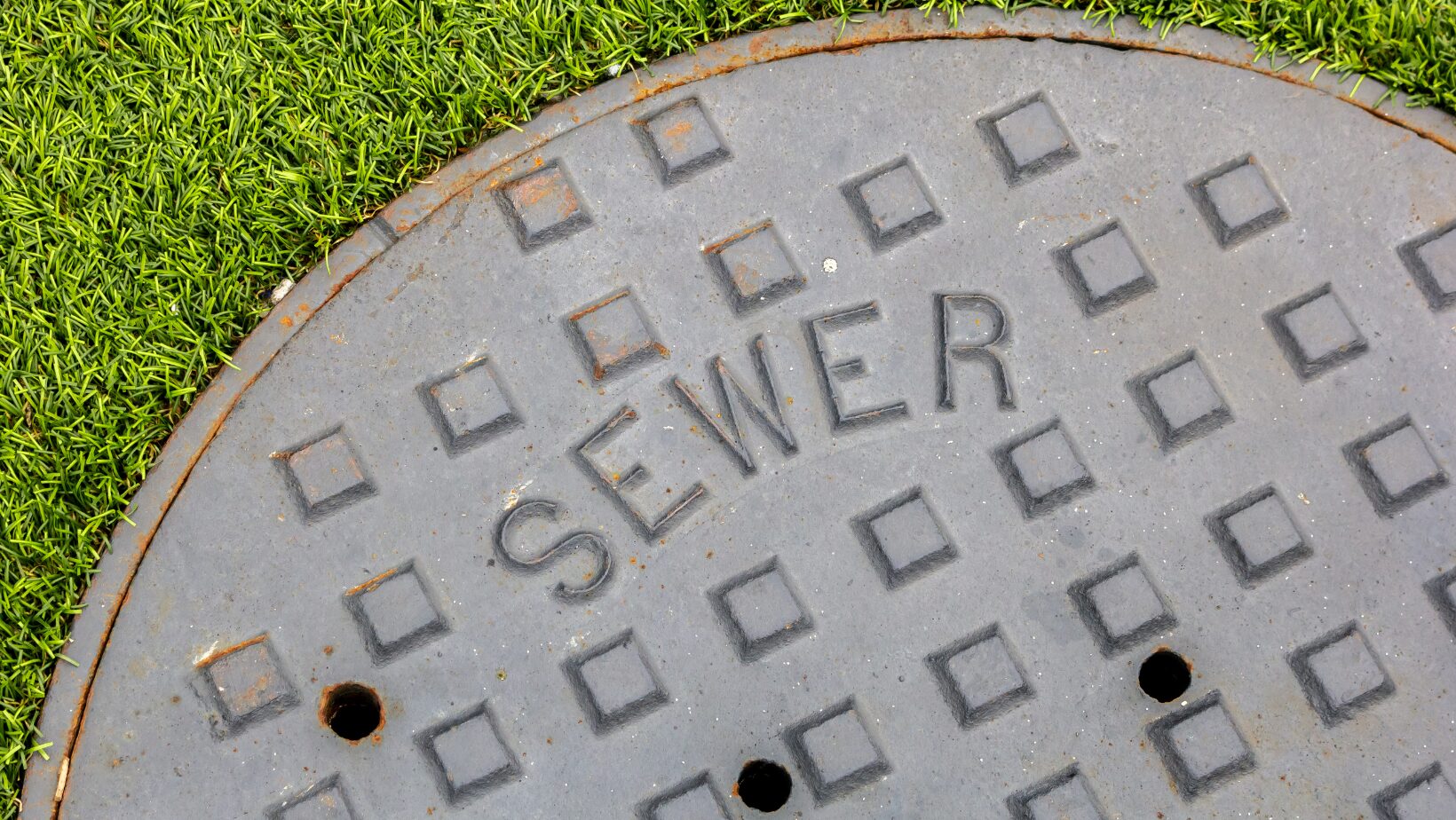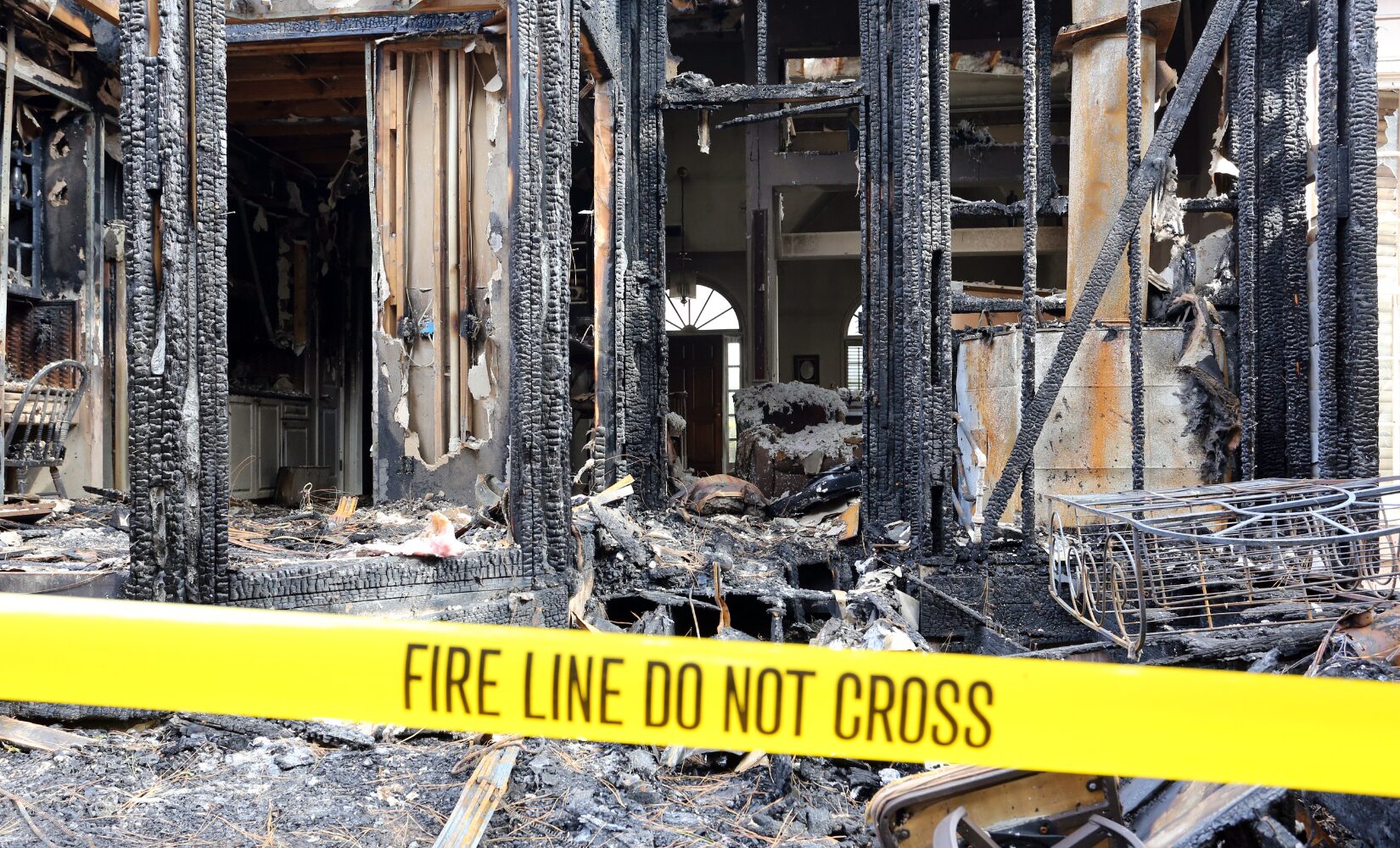
Top Signs Of Sewer Backup: What To Look For And How To Respond
By: 911 Water Damage Experts
Sewer backups are one of the most unpleasant and potentially hazardous problems a homeowner can face. When a sewer line becomes blocked or damaged, it can cause wastewater to back up into your home, leading to significant damage, health risks, and costly repairs.
Recognizing the signs of a sewer backup early can save you from extensive damage and help you address the issue before it escalates.
This guide will walk you through the most common signs of a sewer backup, what to do if you notice these signs, and how to prevent future problems.
Let’s get right into it!
What Is A Sewer Backup?
A sewer backup occurs when wastewater from your home cannot flow into the municipal sewer system due to a blockage or damage in the sewer line. Instead, the wastewater reverses direction and backs up into your home, often coming up through drains, toilets, or sinks. Sewer backups can be caused by several factors, including blockages from debris or grease, tree roots infiltrating the sewer line, or heavy rainfall overwhelming the system.
The dangers of a sewer backup extend beyond just property damage. The wastewater involved is highly contaminated with bacteria, viruses, and other pathogens, posing serious health risks to anyone who comes into contact with it. Additionally, prolonged exposure to moisture from a backup can lead to mould growth and further structural damage to your home.
Why It’s Important To Detect Sewer Backups Early
Early detection of a sewer backup is crucial in preventing extensive damage to your home. When left unchecked, a backup can cause widespread water damage, destroy flooring and walls, and lead to costly repairs. Moreover, untreated sewage in your home poses significant health hazards, including respiratory infections and gastrointestinal illnesses.
By identifying the signs of a sewer backup early, you can take prompt action to address the issue, potentially saving thousands of dollars in repair costs and preventing a hazardous situation in your home. Regular maintenance and vigilance are key to keeping your sewer system in good working order and avoiding unexpected emergencies.
Top Signs Of Sewer Backup
Slow Drains
One of the earliest signs of a sewer backup is slow drains in your home. If you notice that water is draining slowly in your sinks, bathtubs, or showers, it could indicate that there is a blockage forming in your sewer line. This is especially concerning if multiple drains in your home are slow at the same time, as this suggests a more significant issue in the main sewer line.
To test the speed of your drains, you can run water in different fixtures throughout your home and observe how quickly it drains. If all or most of your drains are slow, it’s time to consider the possibility of a sewer backup and take further action.
Gurgling Noises In Pipes
Gurgling sounds coming from your drains or toilets are another common sign of a sewer backup. These noises occur when air is trapped in the sewer line due to a blockage. As the air tries to escape, it causes a gurgling sound in the pipes, particularly when water is being drained.
Gurgling noises are often one of the first audible signs that something is wrong with your sewer system. If you hear these sounds regularly, especially in multiple locations in your home, it’s a good idea to investigate further to determine if a backup is occurring.
Foul Odours
The smell of sewage is unmistakable and should never be ignored. Foul odours coming from your drains, toilets, or basement are a strong indication that there is a problem with your sewer system. These smells occur when sewer gases are trapped and begin to back up into your home due to a blockage in the sewer line.
Persistent odours are a serious red flag and should prompt immediate action. Not only are these gases unpleasant, but they can also be hazardous to your health, so it’s important to address the issue as soon as possible.
Water Backing Up Into Drains
One of the more alarming signs of a sewer backup is water backing up into your drains. This often occurs in the lowest parts of your home, such as basement drains or ground-level fixtures. If you see water pooling in your sinks, bathtubs, or toilets, or notice water coming up from the floor drains, this indicates that wastewater is unable to flow out to the municipal sewer system and is being forced back into your home.
This is a serious problem that requires immediate attention. If you notice water backing up in your drains, stop using water in your home and contact a professional plumber right away.
Multiple Fixtures Are Clogged
If you experience simultaneous clogs in multiple fixtures, such as toilets, sinks, and showers, it’s a strong indication that there is a blockage in your main sewer line. Isolated clogs in one fixture can usually be attributed to a localized issue, but when several fixtures are affected at the same time, it’s likely that the problem lies deeper in the sewer system.
Multiple clogs should never be ignored, as they can quickly lead to a complete backup of wastewater into your home. Prompt action is necessary to prevent further damage.
Toilet Flushing Issues
Toilets are often the first place where signs of a sewer backup appear. If you have difficulty flushing your toilet, or if the water rises in the bowl instead of draining, this could indicate a blockage in the sewer line. Additionally, if you notice that your toilet is gurgling or that water is bubbling up after flushing, this is another sign that there may be a backup.
Toilet issues can quickly escalate into a full-blown sewer backup, so it’s important to address them as soon as you notice a problem.
Wet Spots Or Puddles In The Yard
If you notice unexplained wet spots or puddles in your yard, especially during dry weather, this could be a sign of a broken or blocked sewer line. When a sewer line is damaged, wastewater can leak into the surrounding soil, creating wet patches on the surface.
These spots may not seem like a major issue at first, but they can indicate a serious problem with your sewer system. If left unchecked, the damage can worsen, leading to a more extensive and expensive repair.
Basement Flooding
Basement flooding is one of the most severe signs of a sewer backup, often occurring after heavy rainfall when the municipal sewer system is overwhelmed. When the sewer line is blocked or damaged, it can cause contaminated water to back up into your basement, leading to significant damage and health hazards.
Flooding in your basement is a clear sign that you need professional help immediately. The longer the water sits, the greater the risk of structural damage and mould growth, making it essential to act quickly.
Unusually Green Grass Or Lush Vegetation
If you notice that certain areas of your lawn are greener or lusher than the rest, it could be a sign of a sewer line leak. Sewage acts as a fertilizer, promoting rapid growth in plants and grass. While this may seem like a positive development, it’s actually an indication that untreated sewage is seeping into your yard.
Ignoring these signs can lead to further damage to your sewer system and the potential contamination of your property, so it’s important to address the issue as soon as possible.
Increased Presence Of Pests
An increase in pests, such as rodents, insects, or flies, can also be linked to sewer line issues. These pests are attracted to the moisture and smell of sewage, and a damaged sewer line can provide them with easy access to your home.
If you notice an uptick in pest activity, especially in conjunction with other signs of a sewer backup, it’s worth investigating whether a sewer issue is the root cause.
What To Do If You Notice Signs Of A Sewer Backup
Stop Using Water Immediately
If you suspect a sewer backup, the first thing you should do is stop using water in your home. Continuing to use water can worsen the problem by adding more pressure to the blocked sewer line, potentially causing more wastewater to back up into your home.
Inspect The Situation
Carefully inspect your home for any signs of a sewer backup. Look for slow drains, water backing up, or any unusual noises or odours. It’s important to avoid direct contact with contaminated water, so if you notice a backup, do not attempt to clean it up yourself.
Call A Professional Plumber
As soon as you notice signs of a sewer backup, contact a professional plumber. Sewer backups are complex issues that require specialized equipment and expertise to diagnose and fix. A professional can assess the situation, identify the source of the problem, and provide the necessary repairs to prevent further damage.
How To Prevent Sewer Backups
Regular Maintenance Of Sewer Lines
Regular maintenance of your sewer lines is essential in preventing backups. Schedule routine inspections and cleaning of your sewer lines to ensure they are clear of blockages and in good condition. Regular maintenance can help catch potential issues before they become major problems.
Proper Disposal Practices
One of the simplest ways to prevent sewer backups is to practice proper disposal habits. Avoid flushing items like wipes, feminine products, and grease down the drain, as these can cause blockages in your sewer line. Educate your household members on what can and cannot be flushed or poured down the drain to keep your sewer system running smoothly.
Installing Backwater Valves
Backwater valves are devices that prevent sewage from backing up into your home during heavy rainfall or a sewer line blockage. These valves are installed in the main sewer line and automatically close when a backup is detected, protecting your home from contaminated water. Installing a backwater valve is an effective way to safeguard your home against sewer backups.
Addressing Tree Root Intrusions
Tree roots are a common cause of sewer line blockages, as they can penetrate small cracks in the pipes and grow inside, eventually causing a complete blockage. If you have trees near your sewer line, consider installing root barriers or scheduling regular inspections to catch root intrusions early. Addressing tree root issues promptly can prevent costly damage to your sewer line.
Managing Stormwater
Proper stormwater management can also help prevent sewer backups. Disconnecting downspouts from the sewer system, installing sump pumps, and using rain barrels are all effective ways to reduce the amount of stormwater entering the sewer system. By managing stormwater effectively, you can reduce the risk of your sewer line becoming overwhelmed and backing up into your home.
When To Seek Professional Help
Recognizing When A Backup Is Beyond DIY Fixes
While some minor plumbing issues can be handled on your own, sewer backups are generally not one of them. If you notice any of the signs of a sewer backup mentioned above, it’s essential to recognize that the problem is likely beyond a simple fix. Attempting to resolve a sewer backup on your own can lead to further complications and potential health hazards.
What To Expect From A Professional Sewer Backup Service
When you contact a professional for a sewer backup, you can expect a thorough assessment of your sewer line. This may include camera inspections to identify the blockage, hydro-jetting to clear the line, and any necessary repairs to damaged pipes. Professional plumbers have the expertise and equipment needed to ensure that the backup is fully resolved and that your sewer system is restored to proper working order.
Conclusion
Sewer backups are serious issues that can cause significant damage to your home and pose health risks to your family. By recognizing the signs of a sewer backup early, you can take prompt action to address the problem and prevent further damage.
Regular maintenance, proper disposal practices, and preventive measures like backwater valves are all essential in keeping your sewer system in good condition.
If you have any questions about our article, “Top Signs Of Sewer Backup: What To Look For And How To Respond” or need sewer backup services call us at 1-833-WE-DRY-IT or connect with us on social media.
Top 10 FAQs About Sewer Backup Signs
What Are The First Signs Of A Sewer Backup?
The first signs of a sewer backup often include slow drains, gurgling noises in the pipes, and foul odours coming from drains or toilets.
Can A Slow Drain Indicate A Sewer Problem?
Yes, slow drains in multiple fixtures can indicate a blockage in the main sewer line, which could lead to a sewer backup.
How Can I Tell If The Gurgling Noise In My Pipes Is Serious?
Gurgling noises are often a sign of air trapped in the sewer line due to a blockage. If you hear these noises regularly, it’s a good idea to have your sewer line inspected.
What Should I Do If I Smell Something Foul Coming From My Drains?
Foul odours coming from drains could indicate a sewer backup. It’s important to contact a professional plumber to assess the situation.
How Do I Know If Water Backing Up Is From A Sewer Issue?
Water backing up into your drains, especially in the basement or lower levels of your home, is a strong indicator of a sewer backup.
Are Multiple Clogs In My House Connected To A Bigger Problem?
Yes, if multiple fixtures are clogged simultaneously, it likely indicates a blockage in the main sewer line rather than a localized issue.
Can Tree Roots Really Cause A Sewer Backup?
Yes, tree roots can penetrate and block sewer lines, leading to backups. Regular inspections can help prevent this issue.
Why Is My Grass So Green In One Spot Of My Yard?
Unusually green grass in one spot of your yard could indicate a sewer line leak, where sewage is fertilizing the grass.
How Can I Prevent My Basement From Flooding Due To A Sewer Backup?
Installing a backwater valve, managing stormwater, and maintaining your sewer line can help prevent basement flooding from a sewer backup.
When Should I Call A Professional For A Suspected Sewer Backup?
You should call a professional plumber as soon as you notice any signs of a sewer backup, such as slow drains, gurgling noises, or water backing up into your home. Early intervention is key to preventing further damage.
If you have any questions about our article, “Top Signs Of Sewer Backup: What To Look For And How To Respond” or need water damage services, feel free to call us at 1-833-WE-DRY-IT or chat with us on social media or LiveChat!
Related Posts
Fire Damage Restoration Articles
The Dos And Don’ts Of Commercial Fire Damage
Forest Fire House Damage: What To Do After Your House Is Damaged By A Forest Fire And Who to Call?
Fire prevention tips for the summer
How to clean up after a house fire
Fire damage restoration checklist
Fire damage tips: 6 hazards property owners miss
How smoke from fires can negatively affect your health
What are the most common causes of house fires?
10 helpful smoke damage cleaning tips
Mould Removal Restoration Articles
Is Bathroom Mould Dangerous? Powerful Mould Prevention Tips Inside
Dangers Of Bathroom Mould And Tips On How To Clean And Prevent It
Got Bathroom Mould? Here Are Some Must-Know Bathroom Mould Cleaning Tips
5 Signs You Have Mould Growing In Your Walls
“Can I Remove Mould Myself?” Our Mould Removal Experts Have Answers
7 Must-Know Reasons Why You Should Get A Mould Inspection Before Buying A House
Does Mould Attract Bugs? Yes And Here’s What Kind And Why
How To Remove Mould From The Attic [Mould Prevention Tips Inside]
How Rain Causes Mould Growth-Prevention Tips Included
Must-Know Tips: How To Remove Mould In Your Basement
Water Damage Restoration Articles
How to prevent home storm damage
What you can expect from a fire damage restoration company
Water damage prevention tips from the most common problems we’ve seen
Top causes of water damage in commercial buildings and how to find them
Must-know water damage tips: What to do after your house floods
What does good water damage restoration look like?
DIY water damage restoration and the hidden dangers
How to choose the right water damage company
Flast floods: What to do before, during and after a flash flood
What to do when your attic leaks?
This is why water damage is a silent home killer
Related Water Damage Services
Fire damage restoration services
Water damage restoration services
Emergency cleanup services
Mould removal services
Weather damage services


